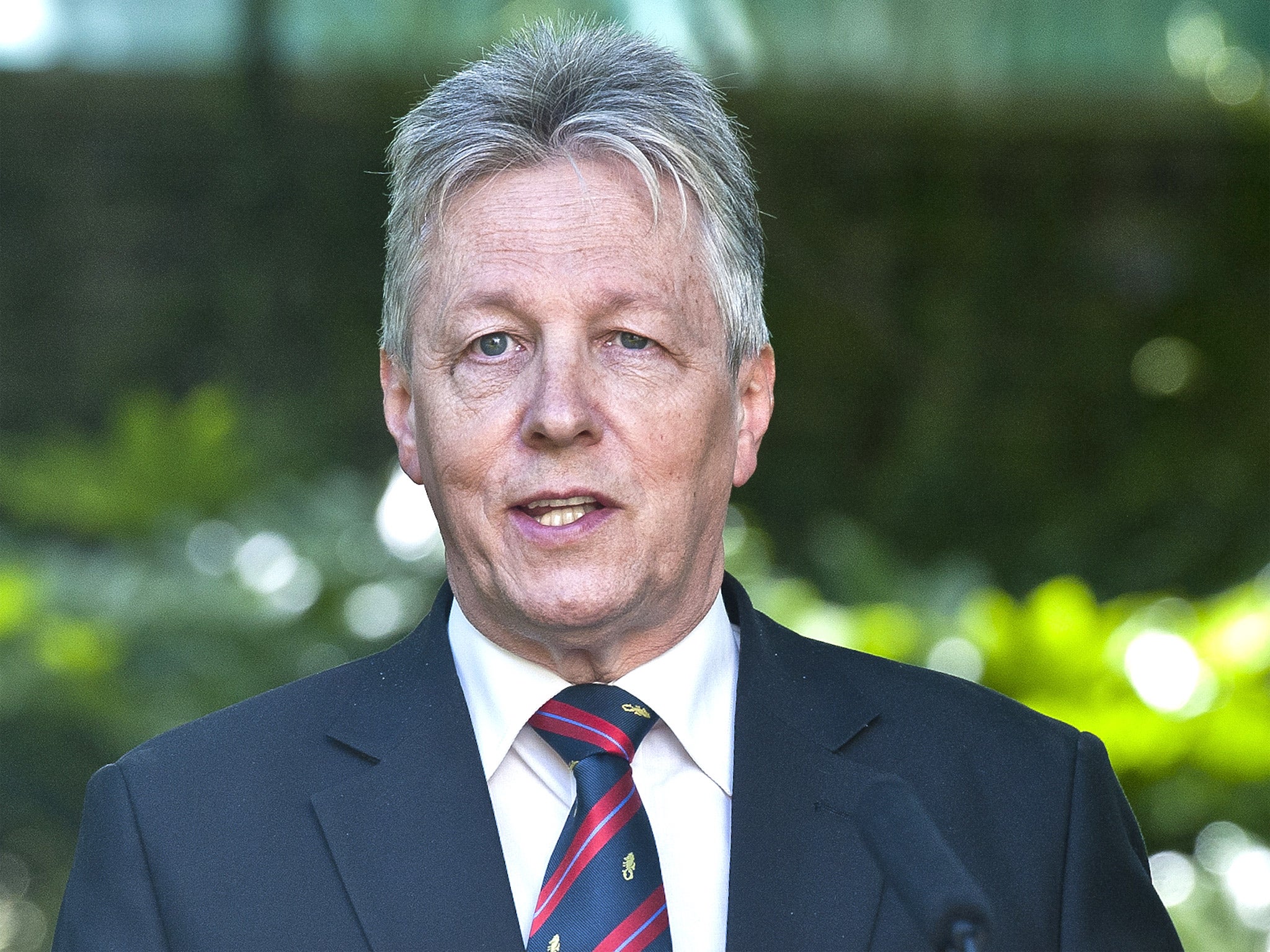Northern Ireland's First Minister Peter Robinson requests Assembly recall as political crisis triggered by the collapse of the Hyde Park bomb case continues
Peter Robinson has issued the Government an ultimatum to respond to his demands for a public inquiry ahead of Friday's session

Northern Ireland’s First Minister Peter Robinson has requested the recall of the devolved Assembly after claiming royal pardons were granted in a government deal that saw IRA terror suspects assured they would not be prosecuted.
Mr Robinson had already delivered the Government an ultimatum that he will resign unless a public inquiry is ordered into the controversy that has triggered the collapse of the Hyde Park bomb case.
The Democratic Unionist leader said the contents of a motion he would put before the Stormont Assembly during a specially convened session on Friday would depend on how the Government responded to his demand.
Mr Robinson issued the effective deadline ultimatum as he emerged from a meeting on Wednesday night with Northern Ireland Secretary Theresa Villiers at Hillsborough Castle.
He earlier expressed outrage that he and other Stormont ministers had been "kept in the dark" over the secret deal that saw government letters of assurance given to more than 180 Irish republican paramilitary suspects which led them to believe they would not be prosecuted.
Mr Robinson said he now understood pardons had also been granted.
"It appears that we are not just dealing with on-the-runs who received letters but we are also dealing with people who received the Royal Prerogative of Mercy, that indicates there were offences involved," he said.
"So we are not talking just about people who it is believed that the police did not have sufficient evidence to make a prosecution stick - that makes it a very serious matter."
The details of the deal emerged during the failed prosecution of John Downey, from Donegal, over the Hyde Park attack.
The 62-year-old denied murdering four soldiers in the 1982 bombing.
The case against him was ended because government officials mistakenly sent him a letter in 2007 telling him he was no longer a wanted man.
Prime Minister David Cameron condemned actions that led to the withdrawal of the prosecution case as a "dreadful mistake".
He told MPs in the House of Commons on Wednesday: "We should be absolutely clear - the man should never have received the letter that he received.
"It was a dreadful mistake and a mistake that we now need to have a rapid factual review to make sure that this cannot happen again.
"But, whatever happens, we have to stick to the principle that we are a country and a government under the rule of law."
Attorney General Dominic Grieve stood by his decision to charge Mr Downey.
Additional reporting by Press Association
Join our commenting forum
Join thought-provoking conversations, follow other Independent readers and see their replies
Comments
Bookmark popover
Removed from bookmarks